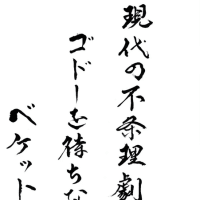victi invictus vicutri:---・
The Latin phrase "victi invictis victuri" carries a profound meaning, often translated as "the conquered [will be] unconquered, about to conquer." It reflects a cycle of defeat, resilience, and impending victory, suggesting that those who have been defeated are not truly vanquished but are instead on the verge of overcoming their adversaries.
This phrase encapsulates the indomitable spirit of humanity, a testament to our ability to endure hardships and emerge stronger. It's a reminder that defeat is not the end but a part of a larger narrative of struggle and triumph.
The phrase has been used historically to inspire those facing adversity, and it continues to resonate today. It speaks to the heart of our shared human experience, echoing the timeless truth that even in defeat, there is the potential for victory.
The sentiment behind "victi invictis victuri" is not just about war or physical battles, but about the challenges we face in life. Whether it's personal growth, social change, or innovation, the phrase reminds us that setbacks are not permanent and that perseverance can lead to unexpected successes.
In a world that often focuses on immediate results, "victi invictis victuri" invites us to take a longer view. It encourages us to see beyond the moment of defeat and to recognize the potential for future triumphs. This perspective is invaluable, whether we're reflecting on history, contemplating personal goals, or working towards societal progress.
In essence, "victi invictis victuri" is a call to resilience, a rallying cry for those who have faced defeat but refuse to be defined by it. It's a celebration of the human spirit's capacity to rise, time and again, from the ashes of defeat to the heights of victory.>>>***
This phrase encapsulates the spirit of never giving up, despite the odds or past setbacks. It's a reminder that defeat can be a temporary state, and with perseverance, one can rise to victory. This sentiment resonates deeply with human experiences across various aspects of life, whether in personal challenges, competitive sports, or even national histories.
The phrase also reflects a philosophical view on the cyclical nature of events—how victory and defeat can be transient and how the defeated may rise again. It's a testament to the enduring human spirit and the belief in the possibility of redemption and triumph.>>
In a broader sense, "victi invictis victuri" can serve as an inspiration for anyone facing adversity. It encourages embracing resilience and preparing for the moment when the tables turn, and the once-defeated emerge victorious. It's a powerful expression of hope and the unyielding human will to persevere and succeed.
Latin, the language of ancient Rome, has left a lasting legacy in the modern world. It is a language rich with wisdom, history, and power. Here are some Latin phrases that carry profound meanings:
1. "Carpe Diem" - Perhaps one of the most famous Latin phrases, it means "Seize the day." It's a call to live life to the fullest, to take advantage of the opportunities that come your way, and to not waste time
.その日を十全に愉しめ!
. "Veni, Vidi, Vici" - Attributed to Julius Caesar, it means "I came, I saw, I conquered." It reflects swift, decisive victory and is often used to describe an unquestionable success. 「来て 見て 勝った」
. "Festina Lente" - It translates to "Make haste slowly," which seems contradictory but actually suggests that one should act with both urgency and thoroughness. 「ゆっくりと 急げ」「急がば回れ」
. "Si Vis Pacem, Para Bellum" - If you want peace, prepare for war. It suggests that a strong defense is essential for maintaining peace.
平和を望むなら 準備を怠ってはならない
These phrases are more than just words; they are life lessons passed down through centuries. They remind us of the values that have stood the test of time: the importance of action, awareness of our own mortality, the power of love, the need for justice, the essence of leadership, the joy of success, the guiding light of truth, the balance of caution and zeal, the pursuit of greatness, and the paradox of peace and conflict.
*** ^^^
・簡潔さと名言:---附:-->>>
漱石の言葉とユーモアのセンス。---:
例えば、「吾輩は猫である」に登場する猫が、自分の名前も知らず、人間社会を風刺する姿は、漱石のユーモアが光る一例だ。彼は、猫を通じて、人間の愚かさや矛盾を簡潔かつ鋭く描き出している。
また漱石は非人情の世界を描いた「草枕」の冒頭でいう。
「智に働けば角が立つ。情に棹させば流される。意地を通せば窮屈だ。兎角に人の世は住みにくい。」と。このように 簡潔さを追求しつつも、人間らしい温かみや深みを忘れてはならないのだ。
また、漱石は「征服」についても言及しており、「ナポレオンでもアレキサンダーでも勝って満足した者は一人もいない」と述べているが、これは、人間の欲望は無限であり、どんなに多くを手に入れても満足することはないという皮肉を込めた表現で、征服者たちも、最終的には何かを求め続ける存在であるということを示している・・。>>>




















※コメント投稿者のブログIDはブログ作成者のみに通知されます